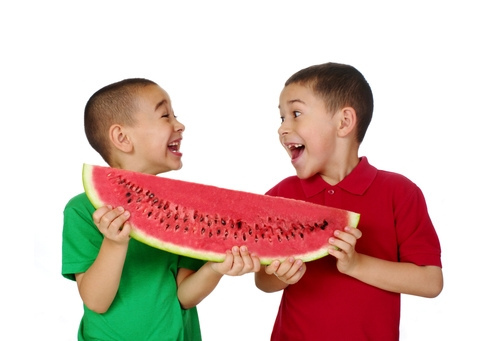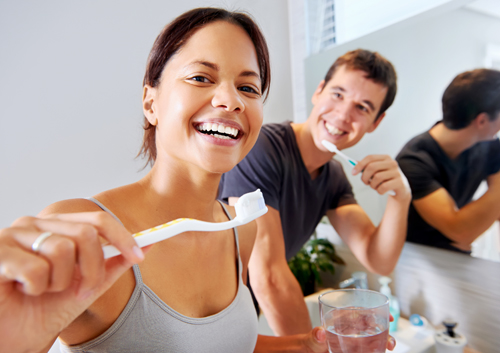Healthy Summer Foods
June 1st, 2017

It’s summer—that wonderful time of year when fresh and delicious produce abounds. Dr. Robert Wortzel will tell you that your teeth, gums, and tissues all rely on an appropriate mix of vitamins and minerals to maintain good oral health no matter what time of year. In previous studies, nutrients in fruits and vegetables such as dietary fiber, potassium, and antioxidants have all been associated with a reduced risk for cardiovascular disease and cancers, including oral cancer.
Here are four foods we want you to enjoy this summer to ensure a healthy mouth:
Watermelons and Strawberries
Watermelons have high water content, which dilutes the affects of the sugars they contain and stimulates the flow of saliva. In addition, research shows that eating foods full of water (watermelon is 92 percent water) helps keep you satiated on fewer calories. Finally, in addition to containing skin-protecting lycopene, eating watermelon can help you stay hydrated during the summer months, which not only keeps your memory sharp and your mood stable, but also helps keep your body cool.
Strawberries are juicy and delicious, and they’re also considered a superfood. Nutrient-rich and packed with antioxidants (such as vitamin C, which can help with cancer prevention), strawberries also promote eye health, help fight bad cholesterol, and regulate blood pressure.
Apples
Did you know consuming apples can help you attain whiter, healthier teeth? It’s true. Biting and chewing an apple stimulates the production of saliva in your mouth, and in the process, lowers the levels of bacteria and other harmful acids, leading to a lower likelihood of tooth decay. Apple consumption can also boost your immune system, reducing cholesterol and helping you avoid Alzheimer’s and Parkinson's diseases. Finally, eating an apple a day has been linked to heart health, including a lower risk of death from both coronary heart disease and cardiovascular disease.
Tomatoes
Tomatoes are a delicious and healthy snack and can help you ward off cancer. The yummy red fruit contains lycopene, which helps protect your skin from sunburn. Tomatoes can also help you fight heart disease due to the niacin, folate, and vitamin B6 nutrients they contain. They’re high in crucial antioxidants, such as vitamin C and vitamin A, which work to prevent DNA damage.



